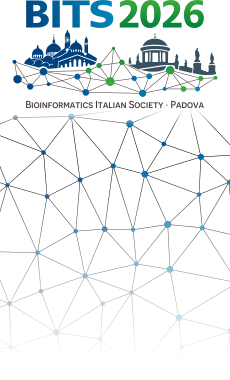Why do some populations fail to survive changing environmental conditions (e.g., extinction) while others thrive and even spread outside their historical range (e.g., biological invasions)?
Can we predict whether a population facing a new environment will contract, displace, or expand?
Join us as a researcher at the Stazione Zoologica Anton Dohrn (Naples, Italy) and the University of Ferrara (Ferrara, Italy) to explore the evolutionary processes underlying range shifts in a marine snail.
The FIASCO project is fully funded by the European Union – Next Generation EU and involves a broad network of local and international collaborators.
The project
Illuminating range shifts through evolutionary FIASCO: contrasting FaIling And Successful ColOnizations in replicated wild populations.
Anthropogenic disturbances and climate changes can lead to rapid population declines, shifted geographic distributions, or rapid adaptation to new conditions. The drivers and implications of this disparity in species’ responses remain puzzling. We explore the evolutionary mechanisms underlying range shifts by contrasting naturally replicated dispersal events in a marine snail. We leverage multidimensional information from whole genomes including chromosomal structural variants, phenotypic traits, and local habitat to clarify why some range shifts succeeded while others ended in a fiasco (i.e., a failure), advancing our understanding of the drivers of ecological success. Such knowledge is crucial to planning efficient actions to prevent the dramatic loss of unique biological heritages and the spread of alien invasive species, two major facets of the ongoing biodiversity crisis.
See the project’s webpage for details: https://raffinifrancescalab.weebly.com/the-fiasco-project.html
Responsibilities
The two researchers are expected to contribute actively to both labs and the extended network and join forces to complete the project’s objectives. They will generate, analyze, and manage multidimensional data, assist with training, produce and contribute to computational pipelines and peer-reviewed papers, and disseminate findings at professional and outreach activities.
Specific tasks include collecting samples from natural populations and available data from collaborators, performing standardized phenotypic and behavioral measurements, extracting DNA for short and long reads, processing raw phenotypic and genetic data, identifying structural variants, conducting association studies and comparative analyses, reconstructing demographic changes, and contributing to dissemination initiatives. These assignments will also be distributed between the two postdocs according to their expertise and interests.
There are ample opportunities to develop new research directions building on these themes and/or new approaches and directions for existing datasets. Applications for postdoctoral fellowships and grants, that would represent a strong asset for the next career steps, are highly encouraged and supported.
Qualifications
If you are highly motivated, creative, passionate, and interested in biodiversity, evolution, genomics, and conservation, hold an MSc in biological, natural, or environmental sciences, evolutionary biology, bioinformatics, population genomics, or a related field, and are familiar (or willing to become acquainted) with bioinformatic analyses of large datasets, you're the
ideal candidate we're seeking. A PhD or submitted thesis in a relevant area, wet-lab molecular laboratory skills, demonstrable experience with population genetics/genomics and NGS, knowledge in programming of scripts and high-performance computing, proficiency in written and oral communication, ability to work independently while effectively contributing to research teams, and an interest in outreach activities are an advantage.
What we offer
One position is based at the Department of Biology and Evolution of Marine Organisms at Stazione Zoologica Anton Dohrn in Naples (Italy, https://raffinifrancescalab.weebly.com). The other researcher will be based at the Department of Life Sciences and Biotechnology at the University of Ferrara (Ferrara, Italy, https://sites.google.com/unife.it/popgg/home/people).
The appointment is called “Assegno di Ricerca” in the Italian system, and it is a hybrid between a fellowship and an employment contract. They both are full-time, 12-month positions with continuation for an additional year pending satisfactory progress and include a competitive salary well-exceeding the average for these cities based on relevant experience, tax benefits, and social security contributions. They are expected to start in early 2024; the exact starting date is negotiable. Partial remote work is possible.
We are a young and dynamic community of scholars that is enthusiastic about evolution and conservation and provides a collaborative scientific environment, flexible working hours, the possibility to develop bioinformatic and communication skills, and involvement with many collaborators in evolutionary biology, conservation, ecology, and beyond. The recruits will benefit from the training and networking opportunities available at both Institutes, which have a long and rich historical and scientific heritage and provide high-tech services, access to numerous research infrastructure and platforms, and assist knowledge transfer. If desired, teaching opportunities are available. Both Departments are located in beautiful historical centres and integrated into an extended network of local and international scientific collaborations.
Naples and Ferrara are conveniently located in a remarkable biodiversity and cultural hotspot. They are lively yet affordable towns that offer numerous recreational activities and amenities that can be enjoyed readily with the proposed salary. They are well connected to each other as well as to top travel destinations in Italy and Europe.
How to apply
Please send us (francesca.raffini3@gmail.com,andrea.benazzo@unife.it) a single PDF attachment in English including:
1. a full CV;
2. a brief cover letter describing your previous research experience and qualifications for the position, along with your current and future research interests (max 1 page);
3. contact information for at least two references.
Review of applications will begin immediately and continue until the position is filled.
Our laboratories and institutes strive to support and foster all aspects of diversity. We benefit from the different expertise, perspectives, and personalities of our staff and are committed to cultivating an inclusive community where all people are respected and valued. We welcome applications from all qualified candidates regardless of their personal backgrounds.
Contact
For more information, please get in touch with Francesca Raffini (francesca.raffini3@gmail.com, https://raffinifrancescalab.weebly.com) or Andrea Benazzo (andrea.benazzo@unife.it).




